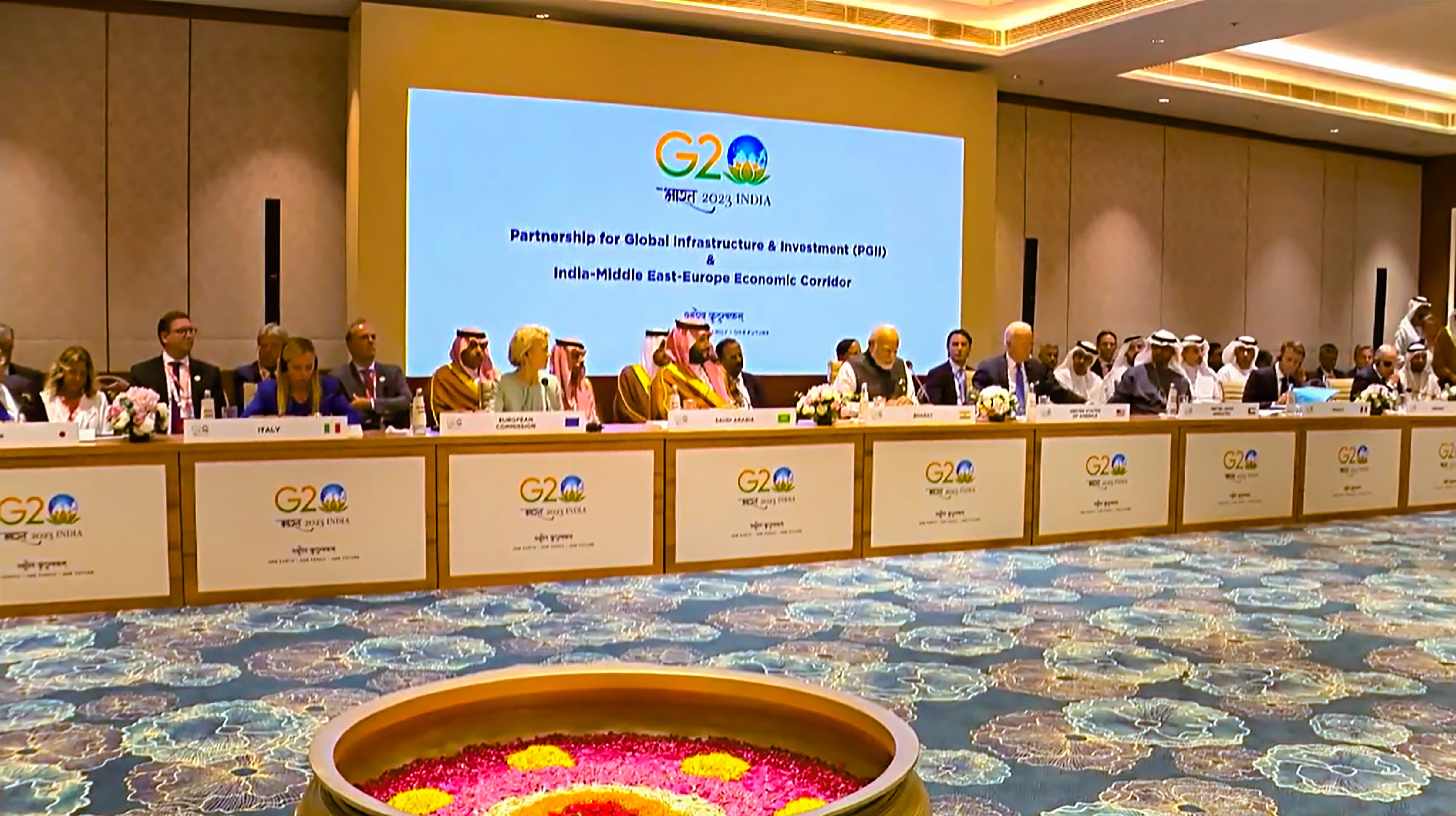The new trade corridor proposed presents both opportunities & challenges: Experts
A deal was struck on Saturday for building an India-Middle East- Europe Economic Corridor (IMEE EC) traversing the route both by rail and sea. The ambitious project, already christened “the new Spice Route” is driven as much by trade compulsions as geo-political concerns, with the participating sovereign states bringing their variant resources to the table and laying the basic groundwork for it to take off. While most experts welcome the proposal, given the commercial potential it holds, they are also privy to the challenges such a mega initiative poses in getting it off the ground.
On one hand, the corridor is aligned with the aspirations of the Joe Biden administration to normalise relations between Israel and the Gulf states, on the other, it will rival China’s Belt and Road Initiative that purportedly imposed a heavy debt burden on countries from Mongolia and Pakistan to Kenya and Zambia.
The project will comprise two corridors - the east corridor linking India to the Arabian Gulf, and the northern corridor connecting the Arabian Gulf to Europe. While India already has a trade agreement with Asean and the UAE, it is exploring separate treaties with the EU, the UK and the Gulf Cooperation Council (GCC) that includes Saudi Arabia and Kuwait, among other countries in the region.
"The plan seems exciting but very challenging considering the Middle East is more volatile than the Indian subcontinent. This idea needs to be developed carefully with thrust on peace in South Asia and the Middle East," said Alok Kumar Verma, former chief engineer with the Indian Railways (IR), adding that IR can be a part of the Asia-Europe rail link via Istanbul.
"India has cutting-edge techno-managerial expertise in building transport and energy infrastructure and Indian majors are engaged in projects around the world. In addition, it brings a cost advantage to infra design and execution," said Davinder Sandhu, co-founder and chairman of consultancy firm Primus Partners.
“Indian firms can participate in the building of the 2100 km long GCC rail link under construction, with required road and rail connectors and logistics centres. Indian industry can also examine potential investments in the Middle East and leverage existing Free Trade Agreements (FTAs) between India and the Middle East on the eastern leg and between Middle East and the EU on the western leg,” Sandhu added. The corridor could hasten the movement of goods across the involved regions by 40%, it is estimated.
"The corridor will enable India’s global value chain participation as well as the manufacturing contribution to GDP. Key drivers would be opportunities to enhance trade with the Gulf Cooperation Council, Europe and also with the USA leveraging European ports," underscored P S Easwaran, Partner and Industry Leader-Consulting, Deloitte India adding that it would provide a very clear alternative to existing supply chains and the footprint globally.
"A corridor of this nature will enable Indian exports to grow by leaps and bounds, particularly considering that Chinese exports are suffering from strong headwinds," Umesh Chowdhary, Vice-chairman and Managing Director, Titagarh Rail Systems Limited added.
According to Sandhu, the proposed project will add additional capacity to western ports with new terminals, and also create road and rail assets in the hinterland. There is potential for upscaling of the Coastal Economic Zone programme.
Implementation of the project will involve extensive consultation between member countries to reach a consensus on techno-economic, operational and legal issues. They will have a large body of knowledge to draw on, given India’s expertise in building rail infrastructure and the work already put in for the GCC railway network. “It does not minimise the challenge ahead in the institutional structures and financing needed for this project, which could turn out to be one of the most ambitious projects ever, in both aspiration and scale,” underscored Sandhu.
“To start, the participating sovereigns can set up a Governing Board at the Ministerial level, with the leadership from Multilateral Development Banks like World Bank, Asian Development Bank, Islamic Development Bank, and European Investment Bank as invitees. There are learnings from Africa’s One- Stop Border Posts program and the BRI corridors that can also be factored in," he added.
Pushpank Kaushik, chief executive of Jassper Shipping, pointed out that the Indian shipping industry will have to address challenges including environmental regulations, timely digitalisation across partner countries, global and domestic political stability, rising shipping costs and security issues. “Our infrastructure plans specifically around ports of exit/entry need to be reoriented to the new reality," Easwaran said.


Deccan Herald is on WhatsApp Channels | Join now for Breaking News & Editor's Picks